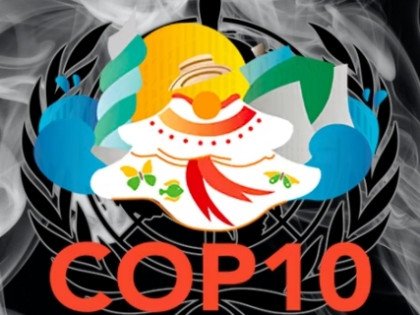“CAPHRA is criticising the WHO and FCTC for their unwillingness to engage constructively with civil society and consumer groups. This lack of engagement is particularly concerning given the potential impact on global tobacco harm reduction efforts,” said Nancy Loucas, a public health policy expert and passionate advocate for tobacco harm reduction and executive coordinator of CAPHRA.
“The Global State of Tobacco Harm Reduction (GSTHR) has also expressed concern about the WHO's approach to tobacco control. The GSTHR argues that the WHO's Framework Convention on Tobacco Control is not working, and that mistrust and ideological opposition are hampering the widespread adoption of a strategy that could help 1.1 billion adult smokers failed by existing tobacco control interventions.”
CAPHRA has called out the WHO for spreading misinformation about the risks of vaping and nicotine, particularly in relation to COVID-19. In a 103-page white paper, CAPHRA stated that the vaping/COVID link is the latest dangerous lie being spread by the WHO as part of its anti-nicotine agenda.
CAPHRA's Executive Coordinator, Nancy Loucas, has been vocal in her criticism of the WHO's stance on vaping, stating, "For years, the WHO has created a steady stream of anti-vaping claims, which has had dire consequences for adult smokers seeking to quit. It has also led to many governments passing legislation that bans vaping and all related products.
“In light of the United Nations' call for a shift from punitive measures to address the global drugs problem to the use of policies grounded in human rights and public health, CAPHRA and the GSTHR are calling for a more compassionate, people-centred, choice-focused, and rights-based approach to tobacco control.”
They argue that involving consumers in the development of healthcare policy and research, clinical practice guidelines, and patient information material can improve the quality of health information and health outcomes for those using tobacco harm reduction alternatives.
CAPHRA and the GSTHR are urging the WHO and FCTC to engage more openly and transparently with civil society and consumer groups. They believe that this is crucial for the development of effective and fair tobacco harm reduction policies that can save lives and improve public health globally.
“We call on the WHO and FCTC to support the UN's stand on harm reduction as a human right and to stop ignoring this important aspect of public health policy,” Ms Loucas said.
References:
- Global State of Tobacco Harm Reduction Briefing Paper - https://gsthr.org/briefing-papers/the-fctc-cop10-agenda-and-supporting-documents-implications-for-the-future-of-tobacco-harm-reduction/
- Western Pacific Declaration - https://www.asiaharmreductionforum.online/#wpd
- ‘Drug Policies and Responses: A Right to Health Framework on Harm Reduction - https://www.ohchr.org/en/calls-for-input/2023/drug-policies-and-responses-right-health-framework-harm-reduction
Dave Cross
Journalist at POTVDave is a freelance writer; with articles on music, motorbikes, football, pop-science, vaping and tobacco harm reduction in Sounds, Melody Maker, UBG, AWoL, Bike, When Saturday Comes, Vape News Magazine, and syndicated across the Johnston Press group. He was published in an anthology of “Greatest Football Writing”, but still believes this was a mistake. Dave contributes sketches to comedy shows and used to co-host a radio sketch show. He’s worked with numerous start-ups to develop content for their websites.
Join the discussion
CAPHRA Highlights Tobacco Control Flaws
The Coalition of Asia Pacific Tobacco Harm Reduction Advocates highlights the flaws in tobacco control which has led to the rise of black market in Australia
Alarm Regarding WHO’s Opacity
The Coalition of Asia Pacific Tobacco Harm Reduction Advocates sounds the alarm on WHO and FCTC's “disturbing lack of transparency”
COP10: Use The Evidence
The Coalition of Asia Pacific Tobacco Harm Reduction Advocates demands an evidence-based approach to tobacco harm reduction from the World Health Organisation and the Framework Convention on Tobacco Control
Include Consumer Voices
Consumer advocacy organisation CAPHRA argues that consumer voices should be included when formulating tobacco harm reduction policies






-listing400.jpg)




